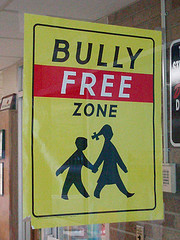 Welcome to Part 2 of my blog series focused on common myths about mental illness! Click here to read Part 1. In honor of May being Mental Health Awareness Month, I am sharing my thoughts on some common myths about mental illness and mental health treatment. This is the second of a 4 part series for the month of May. My goal is to help you better understand mental illness and to share ideas on how to get help if necessary. Please share with anyone who might benefit from this information! Here we go! Myth #2: Mental health treatment is not available in my area. Fact: Mental health treatment is available. To be fair, I work in a metropolitan area that is saturated with mental health professionals. Here, as in other urban areas, one can easily find a large network of social workers, counselors and therapists. If you live in a smaller, more rural area, don’t assume you cannot get help! While you may have fewer options to choose from, help is available. Talk with your primary care physician, pediatrician, local hospital, nearby university/college or someone at your child’s school for guidance or referrals. You can also search online through therapist profile listings such as Psychology Today* or Good Therapy*. Additionally, some agencies and therapists in larger cities offer their services by phone or online video conferencing to serve people in more remote areas. Myth #3: Mental health treatment is too expensive. Fact: Mental health treatment can be affordable. Yes, seeing a therapist can be pricey, but consider what you could gain by spending some time with a trained professional whose priority is to help you through difficult, stressful times. Mental health treatment is an investment in your well-being and your future! However, if the full rates in your area are still more than you can afford, you have options. Often, private therapists accept insurance plans or offer a sliding scale. Many states and counties offer community mental health services that are reduced fee or covered by insurance. (Check out the Colorado Behavioral Health Council to learn more about community mental health services in Colorado.) Another option is to see if your employer offers a benefit known as Employee Assistance Services (EAP). Many people assume EAP services are used only if you are in trouble at work and required to seek counseling. This is only the beginning of what an EAP provides! Employees with EAP benefits can typically access between 2 and 10 free (yes, FREE!!) counseling sessions depending on the specific benefit package. These sessions may be used for any issue you or your family may be experiencing. EAP therapists can often continue seeing you for their typical fee (or maybe even a reduced rate) after your benefits are used. They can also help you find another provider if necessary. Here is another challenge for you: Do a search on your insurance company's website and see how many therapists are available in your area. Also, find out if your employer provides EAP benefits and what those benefits include. Why do this challenge? Consider it an opportunity to educate yourself on your own resources! Check back tomorrow for Part 3 of this series! * I am not sponsored by Psychology Today or Good Therapy and do not benefit in anyway by including these company names in my blog. Their inclusion is simply meant to be informative. Other therapist finder websites exist and can easily be found through a basic web search. Photo from Flickr. Creative Commons. Some rights reserved by FaxPilot. Bethany Raab is a Licensed Clinical Social Worker in Denver, Colorado.
 Did you know that 1 in 4 American adults experiences mental illness every year? Or that 20% of children ages 13 to 18 experience mental health problems in any given year? (National Alliance on Mental Illness) May has been designated “Mental Health Awareness Month” in order to bring awareness to mental illness in America. In my years as a social worker, I have heard many people speak about mental illness as something to be kept secret. Some people are ashamed that they are not well and hesitate to seek help as a result. In honor of Mental Health Awareness Month, I will be discussing 5 myths about mental illness and seeking mental health care. I will also include a bonus post about self-care. This is the first of a 4 part series to be posted throughout the remainder of May. My goal is to help you better understand mental illness and mental health treatment, as well as to offer some ideas on how to get help if necessary. Please share with anyone who might benefit from this information! Here are the topics I will cover over the next 10 days:
Let's get started. Myth #1: Mental illness means I am crazy and will always be crazy. Not so. Crazy is a word often applied with little concern or compassion for those experiencing mental illness. I do not believe having any sort of mental illness makes you "crazy." I believe it means you are facing a challenge that can be managed and often overcome with time, patience, hard work, support and professional help. My challenge to all of my readers is to watch your language. No, I'm not talking about swearing or anything along those lines. What I am asking is that you observe how often you use the word "crazy" to describe someone. Unfortunately, it has become socially acceptable to label someone behaving in an odd or out of control manner as being "crazy" rather than acknowledging they may be dealing with mental illness. Let's change this bad habit and practice acceptance instead. Learn more by reading the rest of the series! Mental Health Awareness Month: Myths and Facts, Part 2 Mental Health Awareness Month: Myths and Facts, Part 3 Mental Health Awareness Month: Bonus Post! Bethany Raab is a Licensed Clinical Social Worker in Denver, Colorado.
"Make each day your masterpiece." This quote by John Wooden is resonating with me today, bringing to mind the idea that every day is a piece of the bigger picture of your life. This has led me to ponder several questions: What does this idea mean for those days that are stressful, difficult or just downright bad? Do the bad periods take away from the overall picture or beauty of your life? How can you persevere through the hard days? See below for my thoughts! Everyone has tough days. For a teen, a big test, friendship problems or a relationship ending could lead to a bad day. For a parent, feeling stressed about work, worrying about their children or simply being tired may lead to a difficult day. Whatever the cause, bad days can seem overwhelming and can often be filled with strong emotions. So what can you do if you are having a bad day today? Here are a few ideas: 1) Remember that today will end. I know this sounds cliche, but it can be helpful to remember that the sun will set, even on the hardest of days. Tomorrow is a new day. 2) Remember that strong emotions will pass. Part of what makes humans unique among all other species is our ability to experience emotions. Strong feelings, including anger and sadness will pass. Rather than bottle these emotions up, find a healthy way to express them outwardly. Talk to a friend or parent, write, draw, run or sing it out. You will feel better in the long run if you do not ignore your emotions. 3) Remember to take care of yourself. If you are experiencing a stressful time, remember to prioritize your well-being. Does spending time with friends make you feel good? Make plans together. Does exercising help you feel calm? Go for a walk or make it a point to hit the gym. Does the idea of attending another activity make you feel exhausted? Politely decline the invitation. Does taking a bath or reading help you feel calm? You get the idea. The most important thing is to make time for YOU! 4) Remember to look for the good. Find something to be grateful for every day. Purposefully seeking out the positive can help counteract negative thoughts. Write things you are grateful for down in a journal so you can be reminded of them during difficult times. 5) Remember the big picture. Your life is an incredible and special piece of art. In the end, the mixture of good and difficult times will serve to make your story uniquely yours and more beautiful than you can imagine! Please, share your thoughts on this topic! What can you do today to make today a part of your masterpiece? Bethany Raab is a Licensed Clinical Social Worker in Denver, Colorado.
Every parent wants their daughter to feel good about herself. We live in a society that places increasing focus on women's bodies. It is important to be mindful about social pressures in your interactions with your daughter. Use positive language and help her feel confident! See below for 10 specific ways to help your daughter love her body! This post originally appeared on the Wasatch Family Therapy Blog.
Welcome to the latest follow up article to my Important New Year's Resolutions for Parents of Teens blog! Here you will find information on the benefits of getting teens involved in their community and ideas about how to get your family started!  Teens who are involved in community activities experience many benefits! Here are just a few: Investment in their community. Teens are able to use their time and talents to engage with others. They may also gain a better understanding of people who are different from them. Role models. Coaches, volunteer supervisors and mentors can provide a safe, positive example to teens. Self confidence. Teens' confidence in themselves will soar as they learn new skills, improve their ability to solve problems and develop leadership skills. Additionally, seeing that they make a difference can be deeply gratifying. Good work ethic. The University of Nevada Extension Office states, "young people involved in community service are more likely to have a strong work ethic as an adult." They learn how to be accountable, make and keep commitments and work well with others. Some pointers as you begin this journey: Find out what activities interest your child. Talk to them and allow them to drive the decision-making process. The more empowered your teen feels from the beginning, the more invested they will be in the -chosen activity later! For indecisive teens, parents may need to be more involved in the decision-making and planning process. Consider your teen. Take their personality into consideration. Not every child will be comfortable playing sports or stepping right into a leadership role. Help them find something that will build upon their strengths. Help them get started. Some teens may be more comfortable starting an activity with the presence of their family. Allowing them to invite a friend along may also boost their confidence heading into a new experience! Consider and manage the risks. Do your research on the organization and meet the adults who will be supervising, leading or coaching your child. Also, talk with your child about their experience on a regular basis to ensure they are safe and comfortable in their chosen activity. Finally, here are a few options to consider with your teen: Sports teams and lessons. Check out your teen's school, the YMCA or local recreation centers. Academic clubs. Mentoring programs. Hobby-based groups. Think chess club, music and theater. Community organizations like 4-H, Girl Scouts and Boy Scouts. Church youth groups. Volunteer opportunities. Hospitals, food banks and animal shelters are often looking for volunteer help. Picture from Flickr. Some rights reserved by Rob Gallop. Bethany Raab is a Licensed Clinical Social Worker in Denver, Colorado.
This week I want to address the second topic covered in my New Years Resolutions blog last month: Sexting. Just to be clear, “sexting” is a combination of the words “sex” and “texting.” It is defined by Urban Dictionary “the act of text messaging someone in the hopes of having a sexual encounter with them later; initially casual, transitioning into highly suggestive and even sexually explicit.” These messages may also include pictures of one self. The Merriam Webster Dictionary includes a similar definition.  It is important for parents and teens to be aware of the risks of sexting behavior. A 2012 study cites states “among girls, the use of sexting behaviors appears to coincide with much higher engagement in risky sex behaviors.” The risk is not limited to teen girls. Did you know that over 75% of teens who are propositioned to have sex via a text, actually end up having sexual intercourse? You are likely already aware of the risks sexual activity including teen pregnancy, contracting HIV or a sexually transmitted disease. Sexting can also have legal ramifications. For example, a teen girl sending a sexually explicit picture of herself to her boyfriend is not illegal (though not a good idea). However, the boyfriend then sharing the picture with one or more people can lead to big problems. This can be considered distribution of child pornography and can carry a prison sentence and the sender being required to register as a sex offender. Psychology Today published an article about the legal concerns with sexting. Here are some suggestions for parents:
Image from Flickr. Some rights reserved by Jhaymesisviphotography. Bethany Raab is a Licensed Clinical Social Worker in Denver, Colorado.
If, as you read, you begin to think that your family might benefit from making changes in one or more of these areas, do not worry! It is never too late to take action. See each step below for specific examples on how to bully-proof your child!
Finally, check out my 2012 blog article on helping kids know what to do if they are bullied or witness someone else being bullied. Click here to read more. Image from Flickr. Some rights reserved by Eddie~S. Bethany Raab is a Licensed Clinical Social Worker in Denver, Colorado.
Parents, this one is for you. We all make our lists at the beginning of the year of things to start, things to stop and things to improve upon. These goals are generally made in the spirit of self-improvement. I’m curious, how many of your resolutions involved your habits as a parent? What do you see as areas for improvement in your role as a parent? While you think about your own parenting resolutions, I have three suggestions for you to consider as you begin 2014 and seek to make it a great year for you and your family! I’ll start with the not-so-fun resolutions. Talk to your children about bullying, both in-person and online. This is a very real issue that can have a devastating impact on kids, both those being bullied and those who are the bullies. Check out the Stop Bullying website for more information. Talk to your teens about their experience at school. Ask about bullying. Find out who the bullies are and who is being targeted. If you find out that your child is being bullied or is doing the bullying, talk to them about their experience. It can be helpful to talk to the school or have your child see a counselor. However, it is most important to hear your child’s perception of what is happening to know how to best proceed. Talk to your teens about the risks of sexting. Let’s start out by defining what “sexting” means. According to Psychology Today, “sexting is sending, receiving, or forwarding sexual photos or sexually suggestive messages through text message or email.” Did you know that over 75% of teens who are propositioned to have sex via a text, actually end up having sexual intercourse? Did you know that a teen sending a sexually explicit picture of themselves to another person can be considered distribution of child pornography? Did you know that a child as young as 10 years old can be charged with a sexual offense in Colorado? If you didn’t know, it is likely that your teens do not know either. It is time to include a discussion about technology in the “birds and the bees” talk. Here is a great article to get you started. Now that those are out of the way, I’ll end with a more “fun” resolution! Help your kids get involved in an extracurricular activity. Many teens naturally find their way to fun and appropriate extracurricular activities. Others may have a more difficult time getting involved. Here are a few benefits of teens being involved in social activities: healthy friendships, improved self-esteem and good role models to name a few. They are good for parents, too! Not only can you feel good about your teen getting all of the above-named benefits, you might just get a little time to yourself, too! Here is a great article on helping your kids get involved. All of this being said, these conversations will be easier and more meaningful for both parents and teens who feel safe and comfortable talking to one another. I encourage you to foster an environment in your home where it is safe for your teen to talk to you about anything. Yes, anything! Thanks for reading today! Check back over the next few weeks as I blog about each of the above mentioned topics in more detail! Bethany Raab is a Licensed Clinical Social Worker in Denver, Colorado.
1) Go ice skating. 2) Write a letter to a friend or family member who lives far away. 3) Make a Christmas Carol music video. 4) Create place cards or other decorations for your family’s holiday celebration. 5) Bake cookies with friends. 6) Help a younger sibling write a letter to Santa. 7) Go sledding (or snowboarding or skiing!) 8) Have a holiday movie marathon. 9) Learn how to make a traditional family dish. 10) Wrap your bedroom door in paper or foil so it looks like a present. 11) Drink hot chocolate while reading a good book. 12) Turn off all lights except the Christmas tree lights. Relax in the quiet room or listen to music. 13) Volunteer time at a local charity. 14) Learn how other cultures and religions celebrate important holidays. 15) Bundle up and go for a walk to admire holiday lights in your neighborhood. Here are some links to websites that inspired this list and for more ideas! Parenting Teens: 50 Fun Holiday Activities Your Teen Will Love Parenting Teens: 101 Fun Things for Teens to Do This Winter Parent Map: 15 Meaningful Holiday Traditions and Fun Family Activities Here are some fun ideas for parents, too! Real Simple: 50 Fun Winter Activities Image from Flickr. Some rights reserved by katushya Bethany Raab is a Licensed Clinical Social Worker in Denver, Colorado.
 Hosting holiday meals, cookie baking, cleaning, decorating, traveling, hosting out-of-town guests, entertaining children who are out of school, holiday gift shopping, parties, and religious celebrations. Did I cause you to feel anxious just thinking about everything that the holiday season entails? This list is just a small example of what many people have planned for the next month. In a re-post from my 2012 holiday blog, here are some tips on managing your to-do list and having a little fun in the process! 1) Take a break. You are not obligated to attend every holiday party or community activity to which you receive an invitation. Rest and quiet time at home will help you be more flexible in stressful situations. 2) Have an ally. Talk with your partner, a close friend or trusted family member about how you are doing and any concerns you may have regarding schedules, difficult relationships or troubling behaviors by your children. Using your support network will help you manage difficult situations more easily than trying to do it on your own. Provide support to your children and teens during this busy time of year. Be sure to carve out quiet time with them during the holiday season. 3) Stick with the household rules. Children and teens should continue to complete their responsibilities and get to bed at a decent time, even if they are out of school. Keeping a schedule will help keep order during a traditionally busy time of year. This will also help decrease difficulties in returning to a normal routine after the holidays. And, yes, it is alright to give consequences to children and teens for not meeting their expectations during the holidays! 4) Be generous and express gratitude. The old statement "it's the thought that counts" is really true! It is not necessary to go into debt to satisfy your child or teen's holiday wish list. Teach your children about generosity by volunteering or buying gifts for underprivileged children. This will help them be more appreciative of the gifts they do receive. Writing thank you notes with your children and teens will help foster feelings of gratitude. Read more here about the benefits of gratitude in teens! 5) Create or continue meaningful traditions. Bake cookies, go ice skating, decorate the family tree and watch holiday movies. These traditions are what children and teenagers will remember and treasure as they grow older. Most importantly: take care of yourself so you can enjoy the joyous celebrations to come! Click here to read the original post. Image from Flickr. Some rights reserved by tonystl. Bethany Jones Raab is a Licensed Clinical Social Worker in Denver, Colorado.
|
Welcome!
Every blog post you see on this page is written especially for teens and their parents! Like it? Pin it!
Follow me!
Categories
All
|




 RSS Feed
RSS Feed